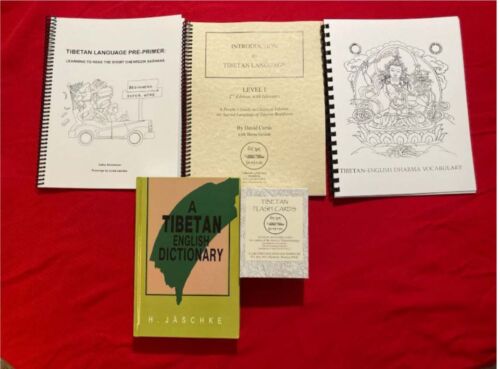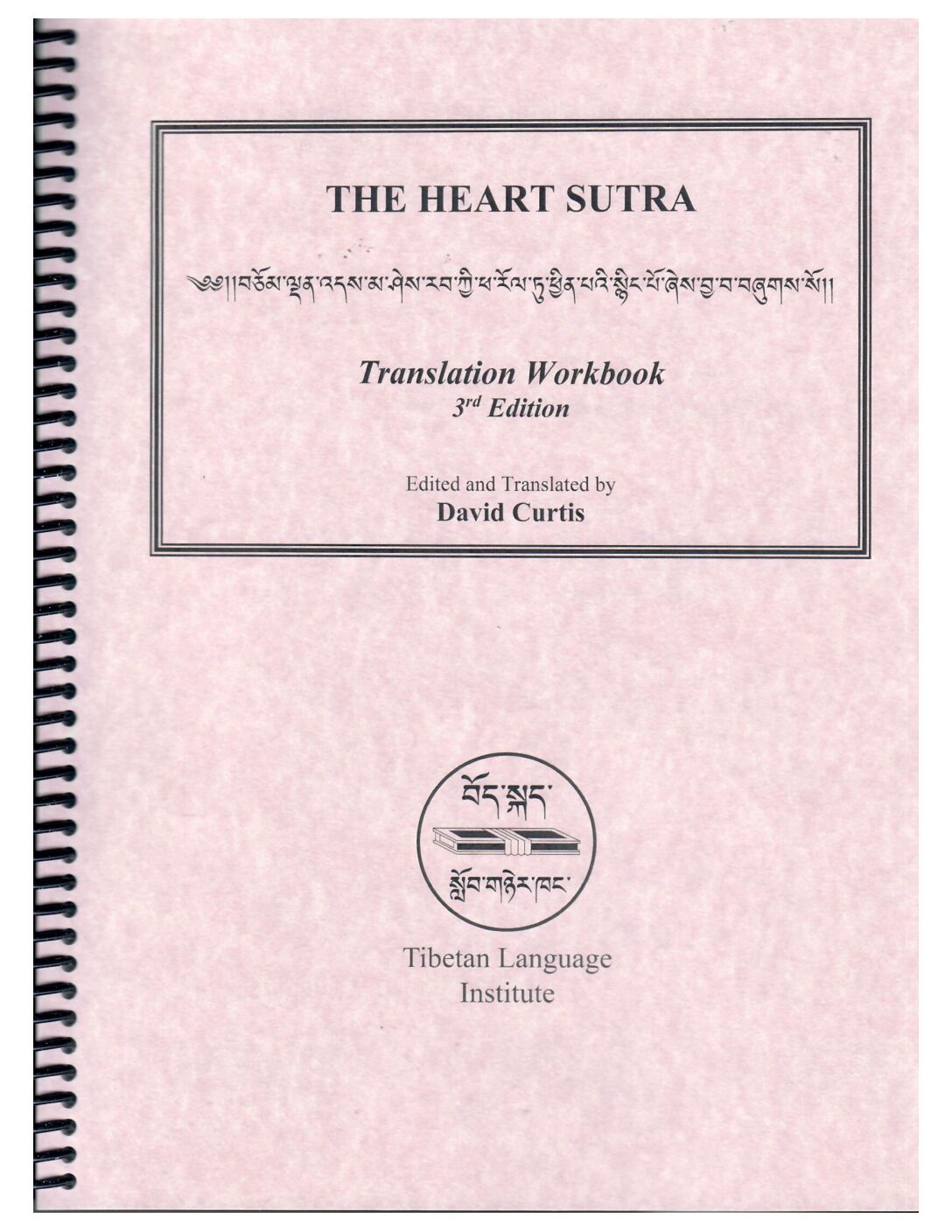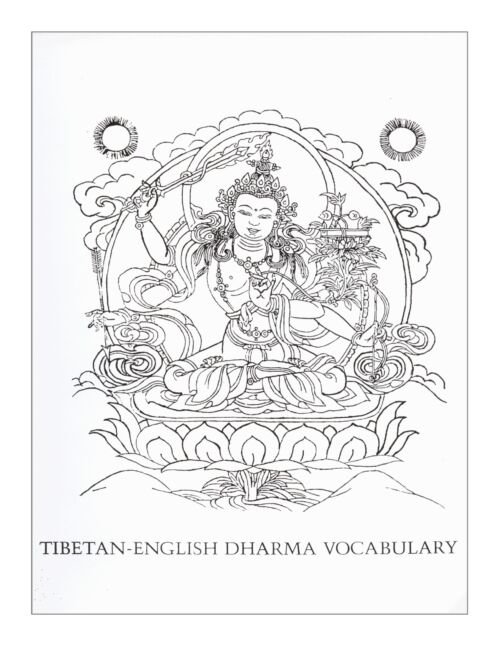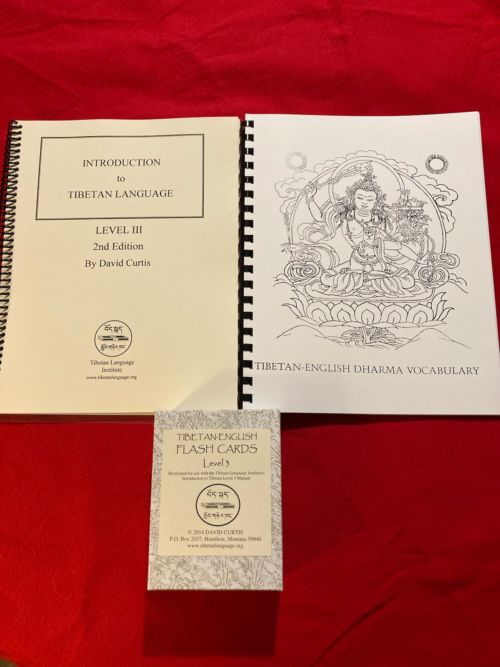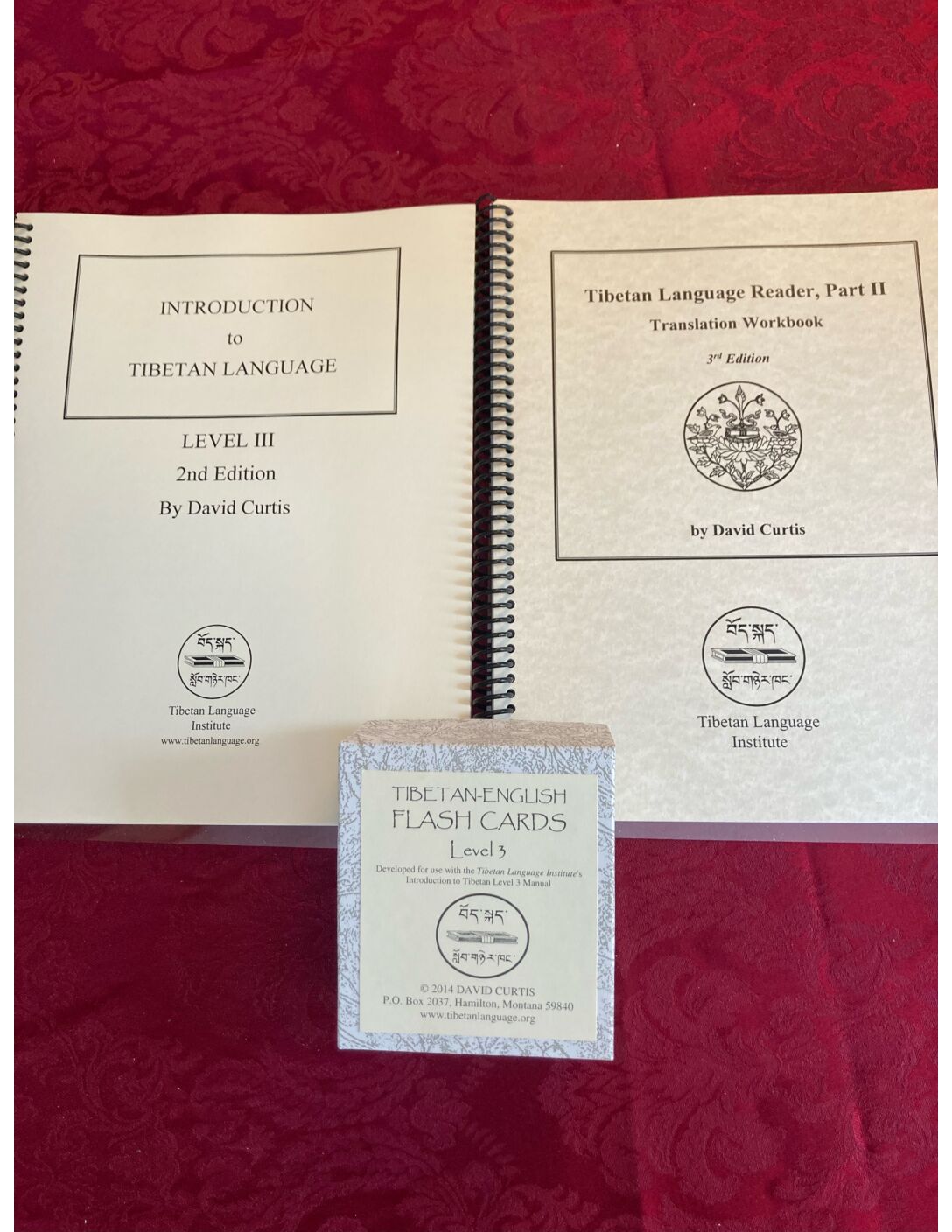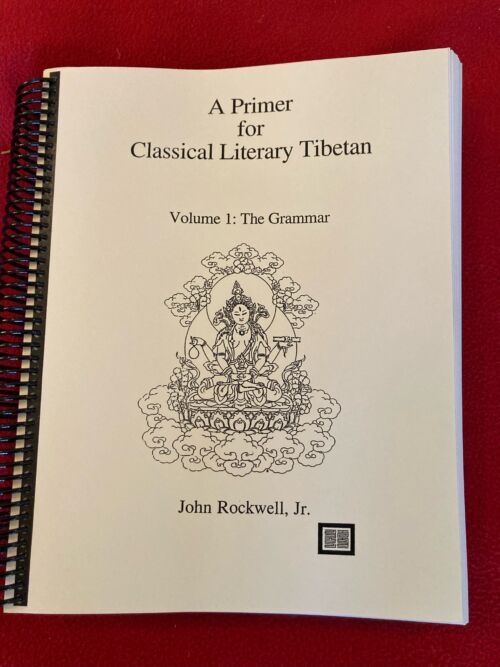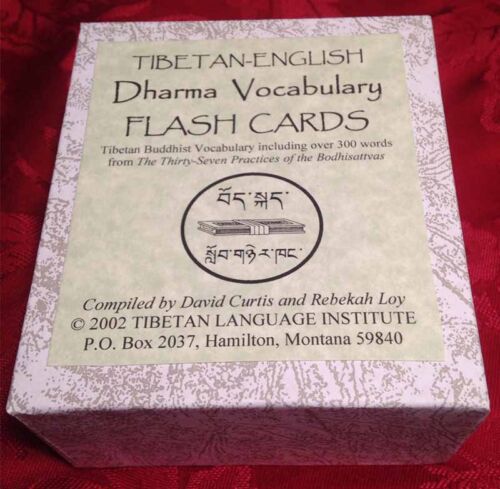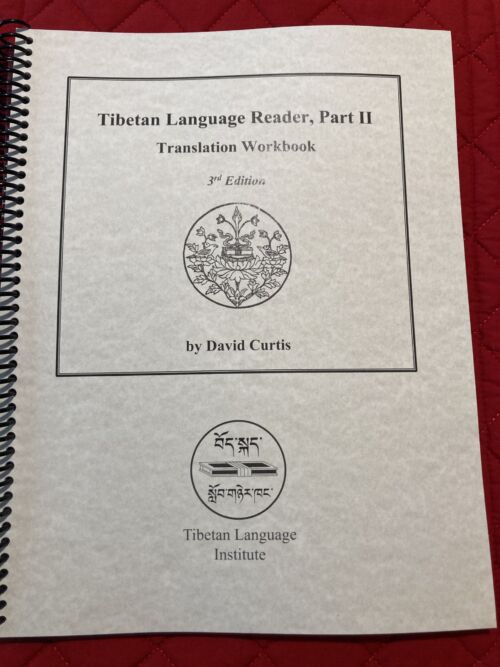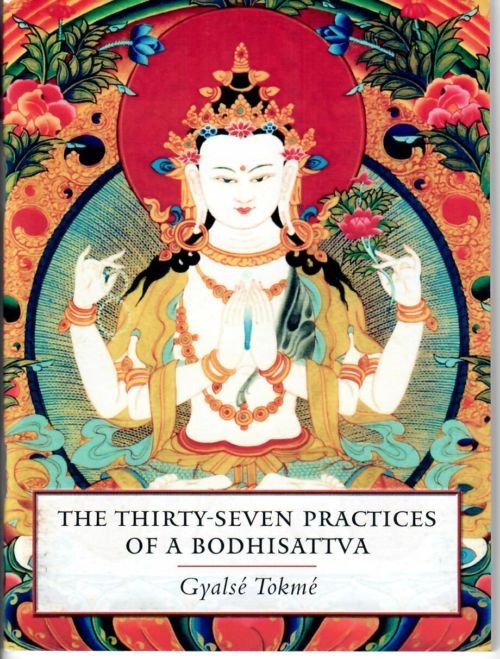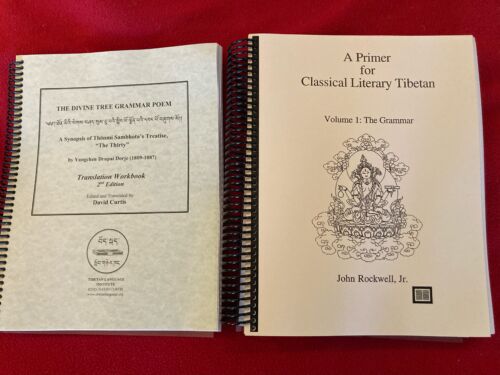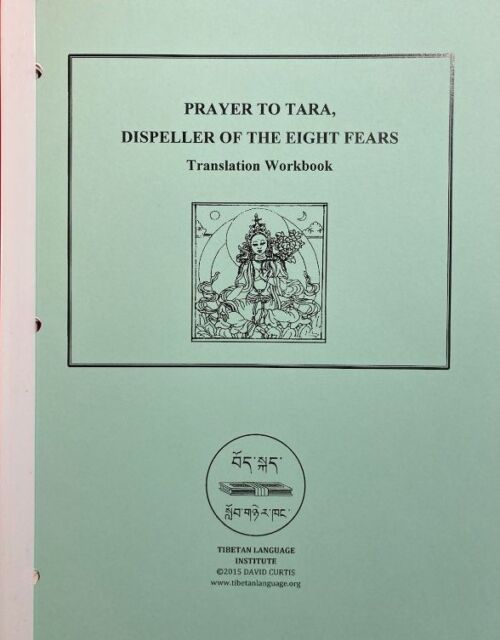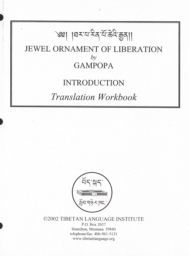-
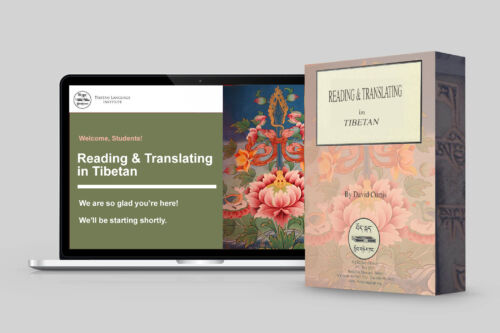 Completing the Level II Course, students are empowered to delve deeper into their study of Tibetan using various TLI reader/translation workbooks. As with previous courses, the group reads and studies a Classical Tibetan text such as the Heart Sutra in conjunction with the study of The Divine Tree Grammar Poem and Commentary. With Lama David as your experienced guide, we will study in an integrated manner to learn more about Tibetan grammar and vocabulary, as well as about Tibetan Buddhism.
Completing the Level II Course, students are empowered to delve deeper into their study of Tibetan using various TLI reader/translation workbooks. As with previous courses, the group reads and studies a Classical Tibetan text such as the Heart Sutra in conjunction with the study of The Divine Tree Grammar Poem and Commentary. With Lama David as your experienced guide, we will study in an integrated manner to learn more about Tibetan grammar and vocabulary, as well as about Tibetan Buddhism. -
 Building on a foundation of the study of words, phrases and sentences in Tibetan, the student will begin to integrate material presented in the Level 1 course, learning how Tibetan works as a language. This course lays the foundation for the successful reading of Tibetan texts and participation in the Level III Reading Course.
Building on a foundation of the study of words, phrases and sentences in Tibetan, the student will begin to integrate material presented in the Level 1 course, learning how Tibetan works as a language. This course lays the foundation for the successful reading of Tibetan texts and participation in the Level III Reading Course. -
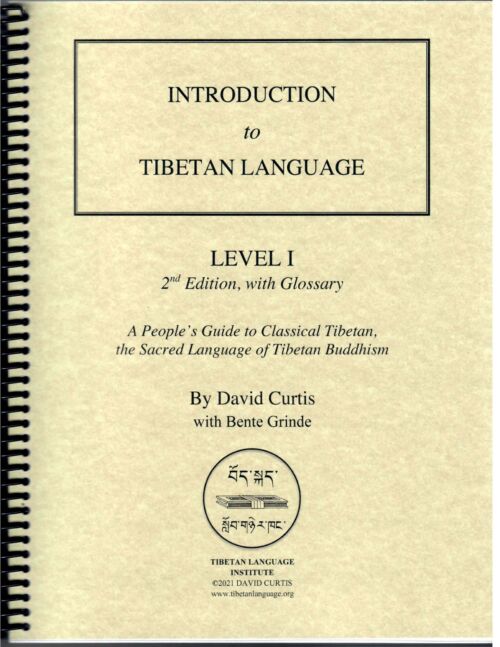 Lama David Curtis designed this Introduction to Tibetan Language, Level I, 2nd Edition, with Glossary: A People’s Guide to Classical Tibetan, The Sacred Language of Tibetan Buddhism as part of a complete course which we strongly recommend for beginners (see the Beginners/Level I Package). Used with great success by Dharma students from all over the world, this workbook represents a distillation of numerous resources, refined through practical teaching experience to meet the needs of beginning Tibetan students.
Lama David Curtis designed this Introduction to Tibetan Language, Level I, 2nd Edition, with Glossary: A People’s Guide to Classical Tibetan, The Sacred Language of Tibetan Buddhism as part of a complete course which we strongly recommend for beginners (see the Beginners/Level I Package). Used with great success by Dharma students from all over the world, this workbook represents a distillation of numerous resources, refined through practical teaching experience to meet the needs of beginning Tibetan students.Amanda V, LV 1 student says: Learning the Tibetan alphabet and the seven elements [of learning to read a Tibetan syllable] has made my Dharma practice a rich experience. Now when I read Sadhanas with the English translation, my pronunciation has improved. It’s fun--I want to continue learning Tibetan.
-
Out of stock
 Building on a foundation of the study of words, phrases and sentences in Tibetan, the student will begin to integrate material presented in the Level 1 course, learning how Tibetan works as a language. This course lays the foundation for the successful reading of Tibetan texts and participation in the Level III Reading Course.
Building on a foundation of the study of words, phrases and sentences in Tibetan, the student will begin to integrate material presented in the Level 1 course, learning how Tibetan works as a language. This course lays the foundation for the successful reading of Tibetan texts and participation in the Level III Reading Course. -
 Designed as part of a complete course for the beginning/intermediate learner (Level II Package).
Designed as part of a complete course for the beginning/intermediate learner (Level II Package). -
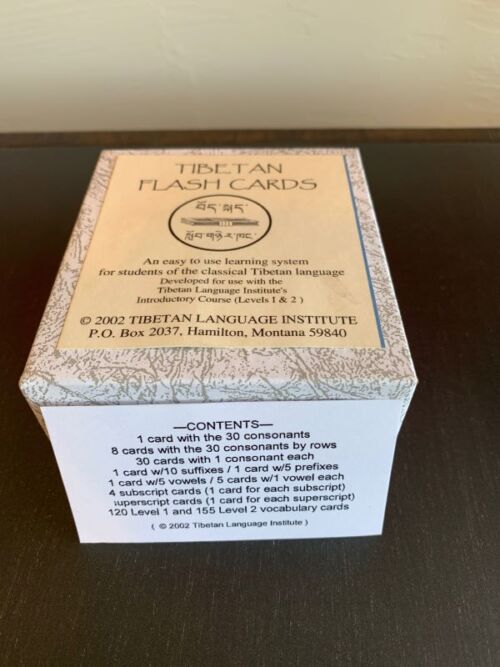 These flashcards are being used by students all over the world to learn basic Tibetan vocabulary. They contain all of the carefully chosen vocabulary words from both the Level I Workbook and Level II Workbook (over 250 words).
These flashcards are being used by students all over the world to learn basic Tibetan vocabulary. They contain all of the carefully chosen vocabulary words from both the Level I Workbook and Level II Workbook (over 250 words). -
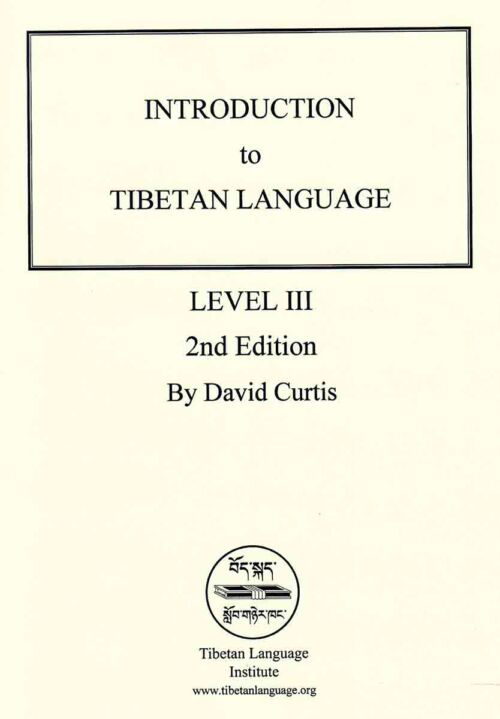 The manual is divided into 5 sections: grammar, vocabulary, a Tibetan-to-English glossary, an English-to-Tibetan glossary, and a homework section. Designed as part of a complete course for the beginning/intermediate learner. (Level III Package)
The manual is divided into 5 sections: grammar, vocabulary, a Tibetan-to-English glossary, an English-to-Tibetan glossary, and a homework section. Designed as part of a complete course for the beginning/intermediate learner. (Level III Package) -
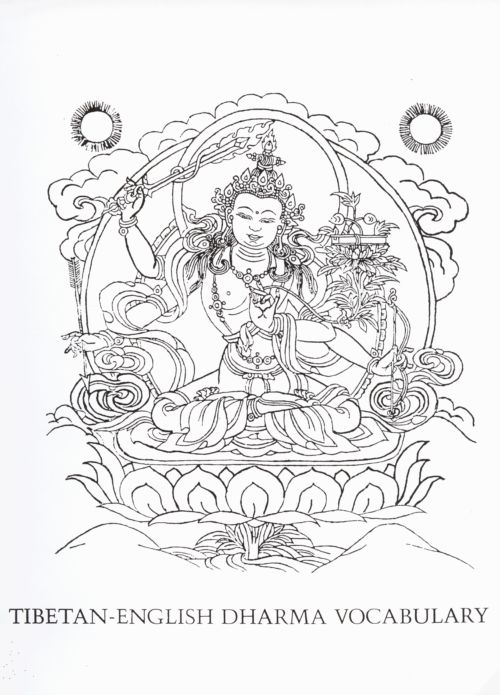
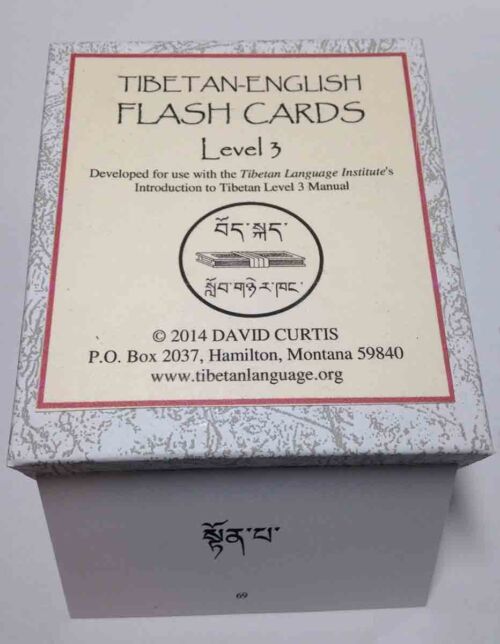 Learn the carefully chosen 212 vocabulary words found in the Level III Workbook.
Learn the carefully chosen 212 vocabulary words found in the Level III Workbook. -
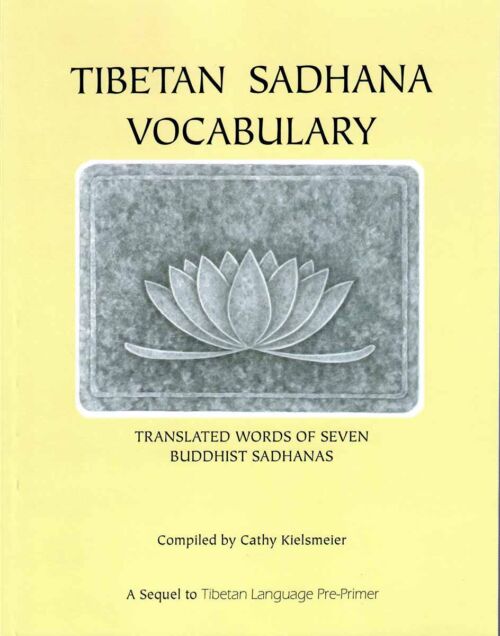 Does your daily meditation practice include reciting in Tibetan? Want to learn what the Tibetan words in your sadhana mean? This guide will help you with that project. Using this book you can more quickly and easily:
Does your daily meditation practice include reciting in Tibetan? Want to learn what the Tibetan words in your sadhana mean? This guide will help you with that project. Using this book you can more quickly and easily:- Transform your sadhana visualization practice by learning what you are saying in Tibetan as you recite in Tibetan.
- Design a basic vocabulary list to meet your individual goals.
- Develop a basic canonical vocabulary to prepare for retreats.
- Select out those words most frequently used, less used, or rarely used in these sadhanas.
-
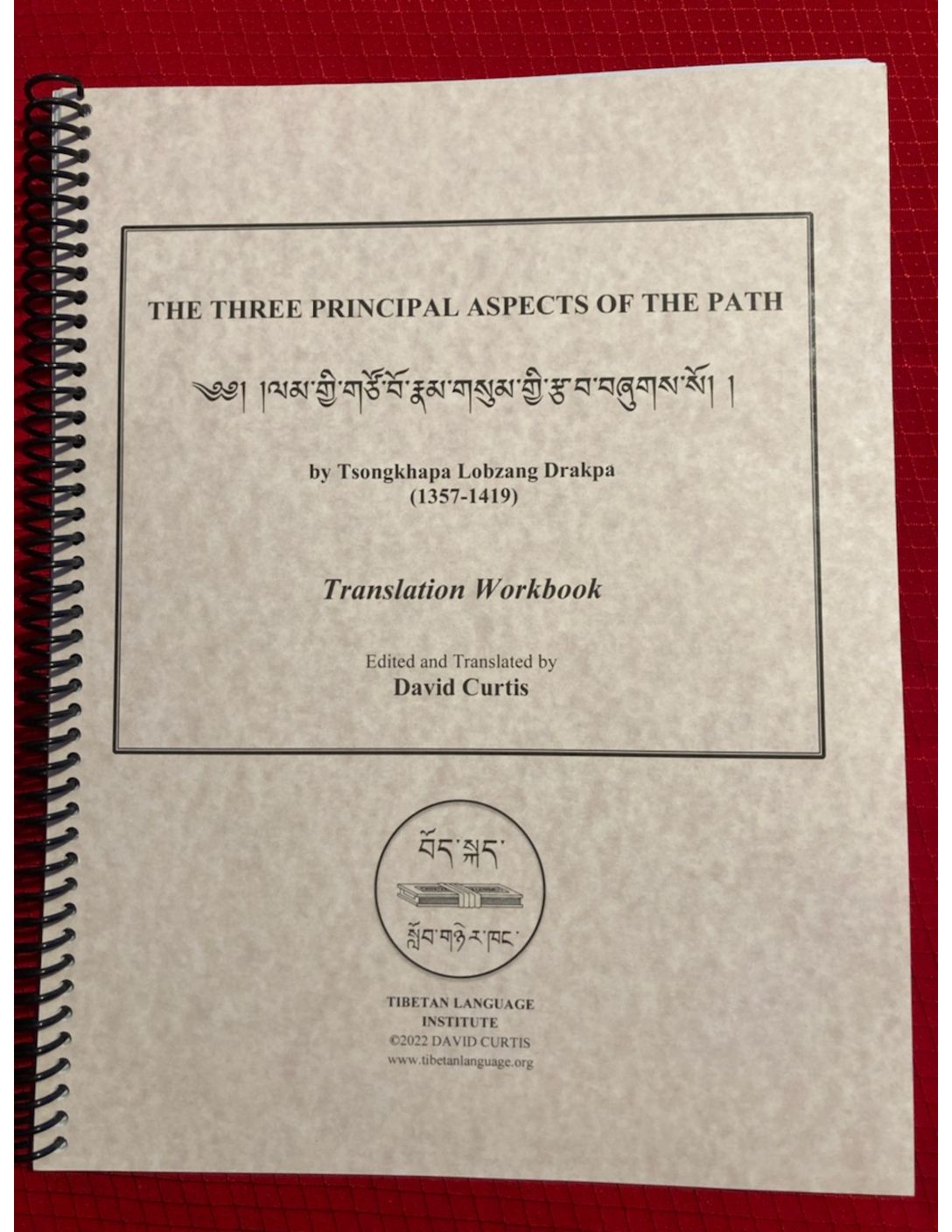 Become a better reader of Tibetan and engage more deeply with authentic Dharma teachings. The Three Princpal Aspects of the Path by Je Tsongkhapa (1357-1419) is a concise and beautifully crafted text, rich in Buddhist philosophical meaning. In just 14 verses, it offers a brief, highly-polished summary of the path (lamrim) to enlightenment. The Three Principal Aspects of the Path can be regarded as a highly condensed version of the Lamrim Chenmo, Tsongkhapa's magnum opus. Despite being over 600 years old, it is still an important text in the Tibetan Buddhist tradition.
Become a better reader of Tibetan and engage more deeply with authentic Dharma teachings. The Three Princpal Aspects of the Path by Je Tsongkhapa (1357-1419) is a concise and beautifully crafted text, rich in Buddhist philosophical meaning. In just 14 verses, it offers a brief, highly-polished summary of the path (lamrim) to enlightenment. The Three Principal Aspects of the Path can be regarded as a highly condensed version of the Lamrim Chenmo, Tsongkhapa's magnum opus. Despite being over 600 years old, it is still an important text in the Tibetan Buddhist tradition. -
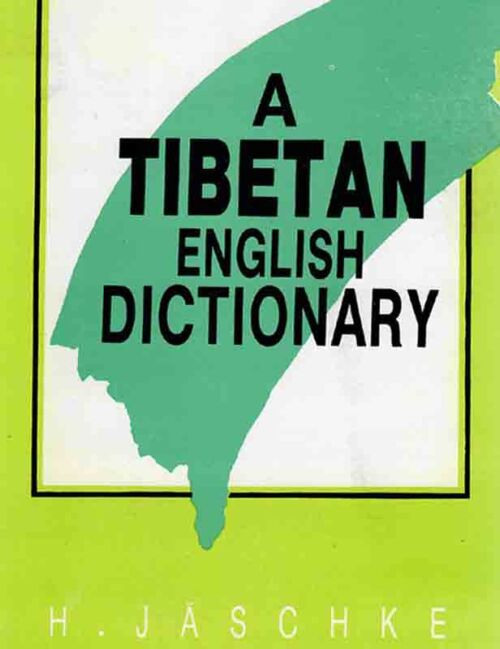 An excellent Tibetan-to-English dictionary! With hundreds of quotes from the Tibetan saint Milarepa, the Tibetan Book of the Dead ( the Bardo Thodol in Tibetan), and other Dharma sources. Includes an English-to-Tibetan glossary. Would like to understand the Tibetan words in your Buddhist sadhana? This dictionary is a guide for beginning to develop a sadhana vocabulary, an easier task than you might think.
An excellent Tibetan-to-English dictionary! With hundreds of quotes from the Tibetan saint Milarepa, the Tibetan Book of the Dead ( the Bardo Thodol in Tibetan), and other Dharma sources. Includes an English-to-Tibetan glossary. Would like to understand the Tibetan words in your Buddhist sadhana? This dictionary is a guide for beginning to develop a sadhana vocabulary, an easier task than you might think. -
Sale!
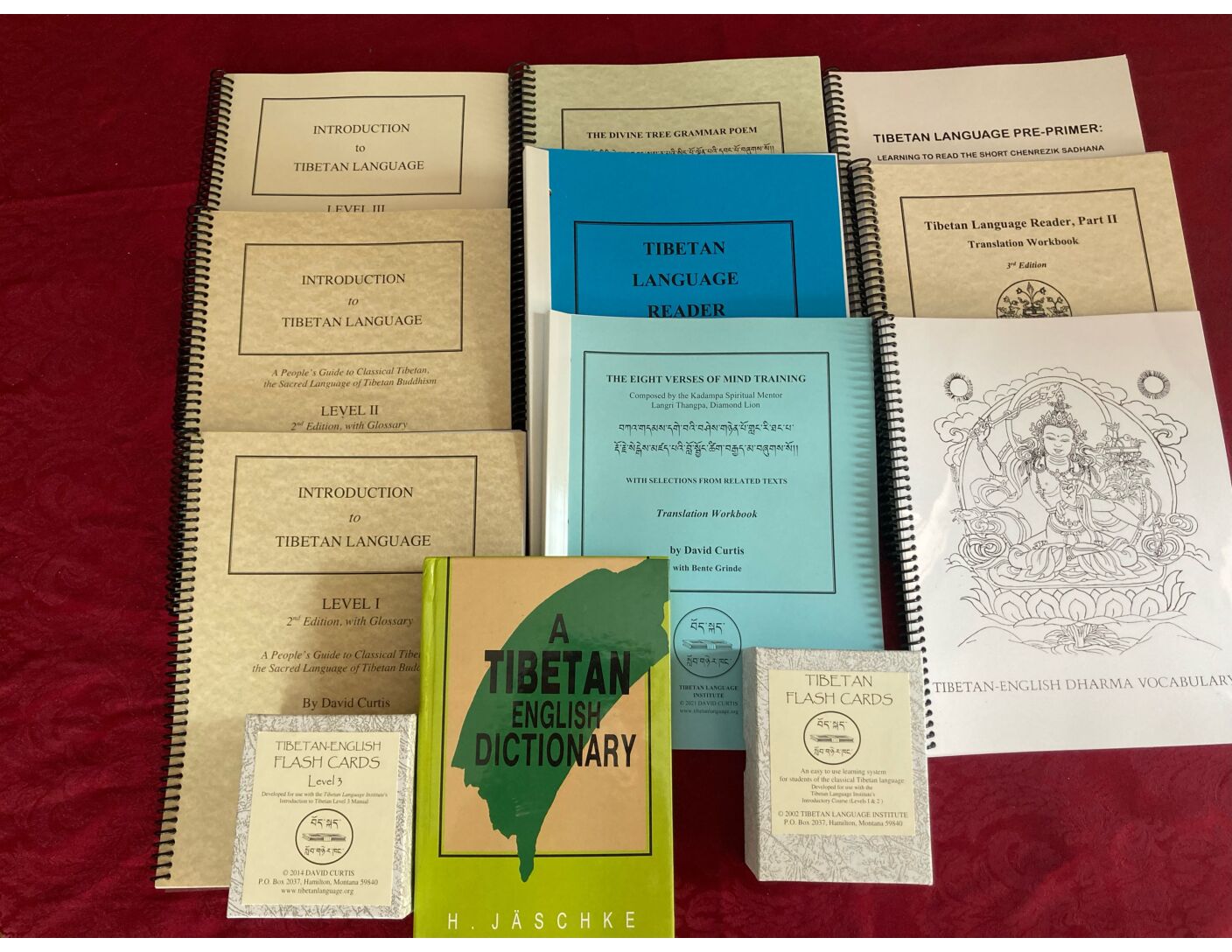 Save $30 when you order the Level I Package and Level II Package and Level III Package together! There is also considerable savings on postage when ordering the Super Bundle. Classical Tibetan learning materials for Dharma students.
Save $30 when you order the Level I Package and Level II Package and Level III Package together! There is also considerable savings on postage when ordering the Super Bundle. Classical Tibetan learning materials for Dharma students. -
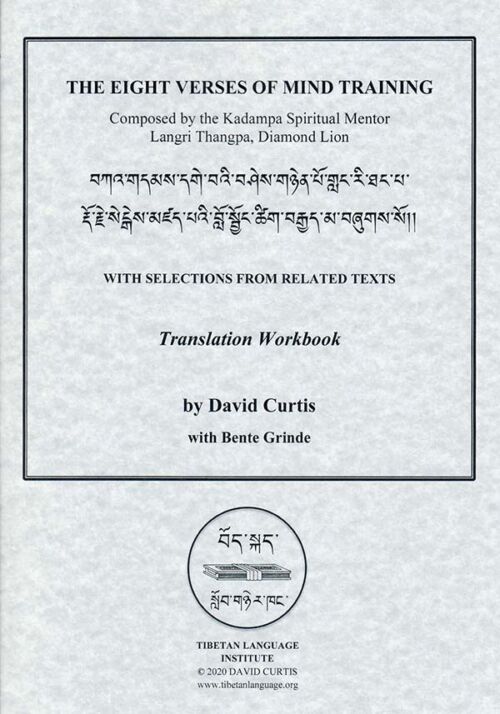 Become a better reader of Tibetan and engage more deeply with authentic Dharma teachings. Although written a thousand years ago by Kadampa spiritual mentor Geshe Langri Thangpa, the 8 Verses remains a brilliant lojong teaching that speaks right to our hearts in these challenging times. This a teaching that is still enthusiastically embraced by all lineages of Tibetan Buddhism. It has been taught by the 14th Dalai Lama, Lama Zopa Rinpoche, and most recently by Anam Thubten Rinpoche. Our workbook also has additional 4-line verses from various texts having to do with compassionate development of bodhicitta (the Heart of Awakening): a prayer from the Green Tara Sadhana, a verse from chapter 9 of Shantideva’s Engaging in the Conduct of the Bodhisattva, and a prayer from the Chenrezig Sadhana.
Become a better reader of Tibetan and engage more deeply with authentic Dharma teachings. Although written a thousand years ago by Kadampa spiritual mentor Geshe Langri Thangpa, the 8 Verses remains a brilliant lojong teaching that speaks right to our hearts in these challenging times. This a teaching that is still enthusiastically embraced by all lineages of Tibetan Buddhism. It has been taught by the 14th Dalai Lama, Lama Zopa Rinpoche, and most recently by Anam Thubten Rinpoche. Our workbook also has additional 4-line verses from various texts having to do with compassionate development of bodhicitta (the Heart of Awakening): a prayer from the Green Tara Sadhana, a verse from chapter 9 of Shantideva’s Engaging in the Conduct of the Bodhisattva, and a prayer from the Chenrezig Sadhana. -
Out of stock
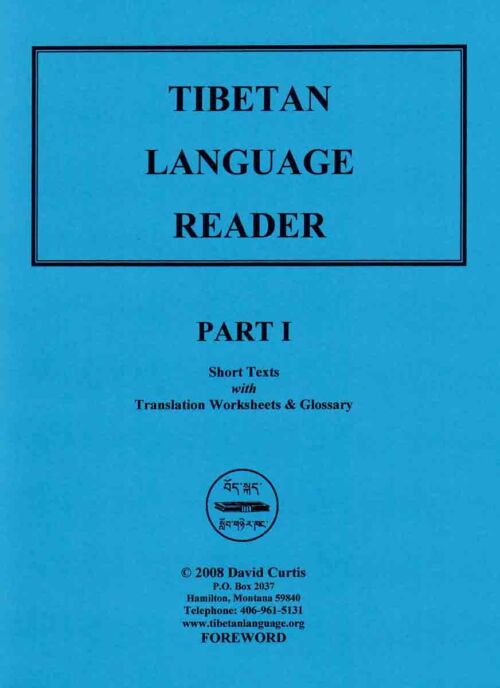 Enhance your understanding of the Dharma by reading in Tibetan many of the prayers you may already be familiar with. Many of our students have found this a transformative experience.
Enhance your understanding of the Dharma by reading in Tibetan many of the prayers you may already be familiar with. Many of our students have found this a transformative experience. -
Sale!
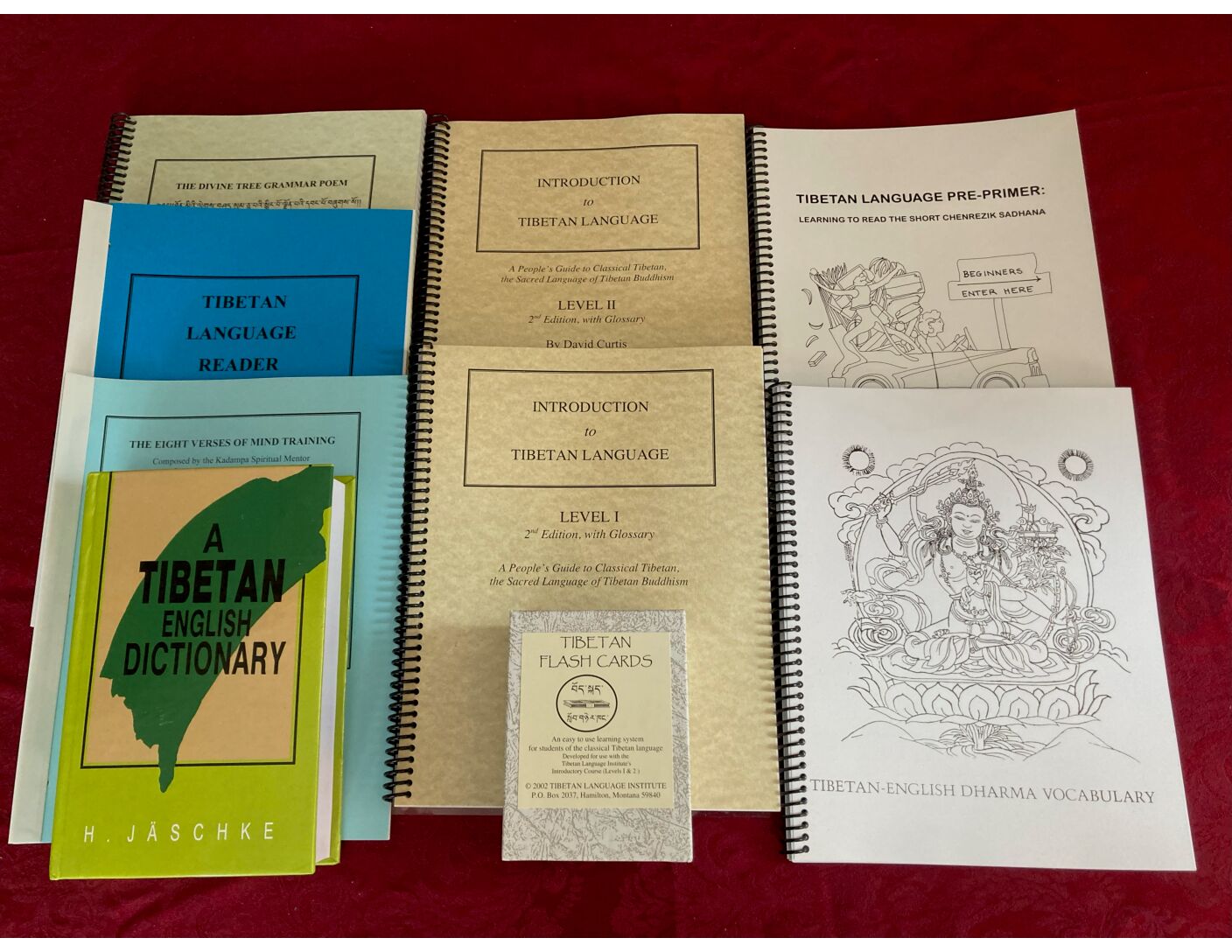 Save $25 when you order both the Level I Package and Level II Package together! Classical Tibetan learning materials for Dharma students.
Save $25 when you order both the Level I Package and Level II Package together! Classical Tibetan learning materials for Dharma students. -
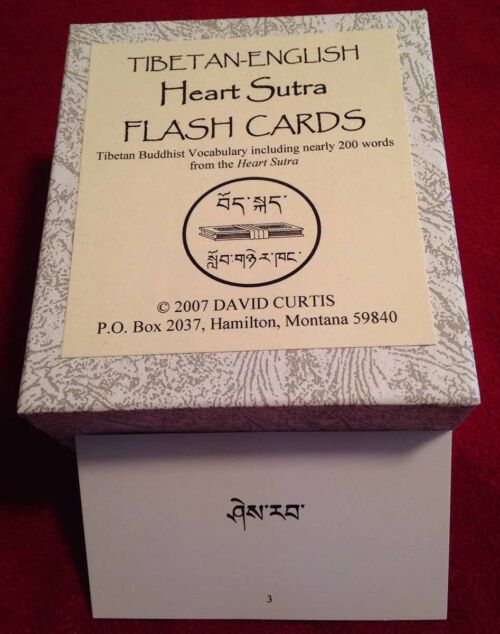
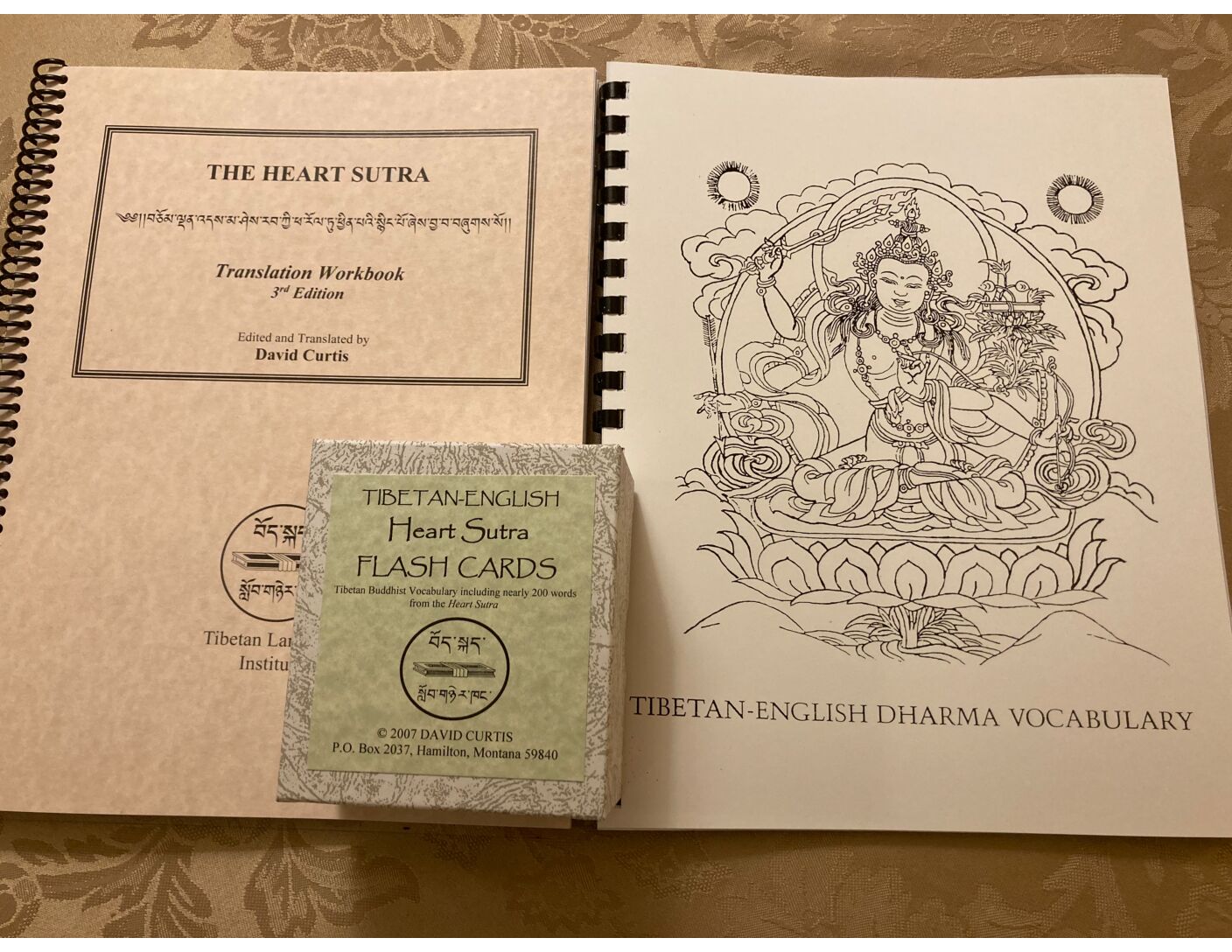 This learner-friendly package was designed for students who can read the Tibetan script and use the Tibetan-English dictionary. The package includes the following items:
This learner-friendly package was designed for students who can read the Tibetan script and use the Tibetan-English dictionary. The package includes the following items:- Heart Sutra Translation Workbook 3rd ed.
- Tibetan-English Heart Sutra Flash Cards
- Tibetan English Dharma Vocabulary
-

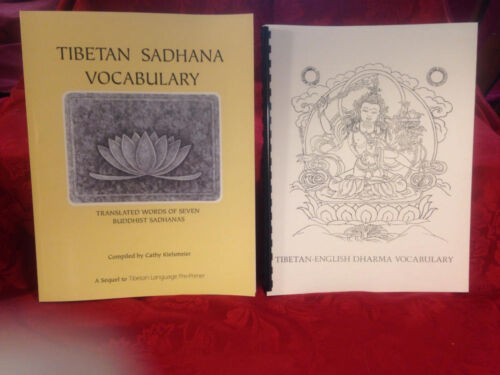 This package is intended for those who can read the Tibetan uchen script. It includes:
This package is intended for those who can read the Tibetan uchen script. It includes:- The Tibetan-English Dharma Vocabulary (as instructed by Kalu Rinpoche). This book is laid out so that you can easily learn essential topics that are heard often from Lamas and Rinpoches during Dharma talks. The Four Noble Truths, Twelve Interdependent Links of Causation, Four Obscurations, Three Bodies of a Buddha plus much, much more.
- The Tibetan Sadhana Vocabulary by Dr. Cathy Kielsmeier. This book helps you learn the basic words that are found in seven common sadhanas or practice texts of the Tibetan Buddhist tradition.
-
Sale!Out of stock
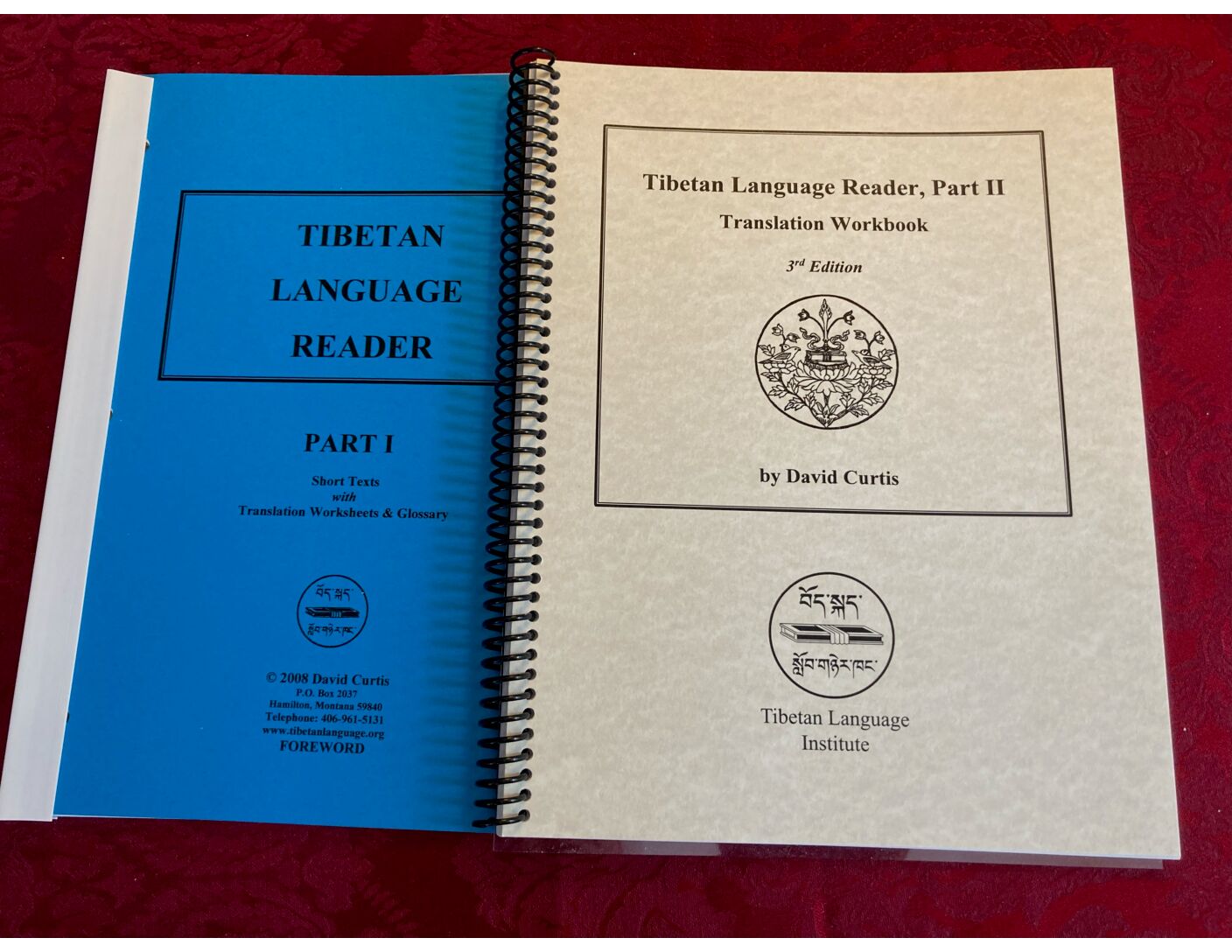 Enhance your understanding of the Dharma by reading in Tibetan many of the prayers you may already be familiar with. Save $10 when ordering the Tibetan Language Reader, Parts I and II together.
Enhance your understanding of the Dharma by reading in Tibetan many of the prayers you may already be familiar with. Save $10 when ordering the Tibetan Language Reader, Parts I and II together. -
Sale!
 Four sets of flash cards in this package, beautifully laid out with Tibetan on one side and English on the other:
Four sets of flash cards in this package, beautifully laid out with Tibetan on one side and English on the other:


